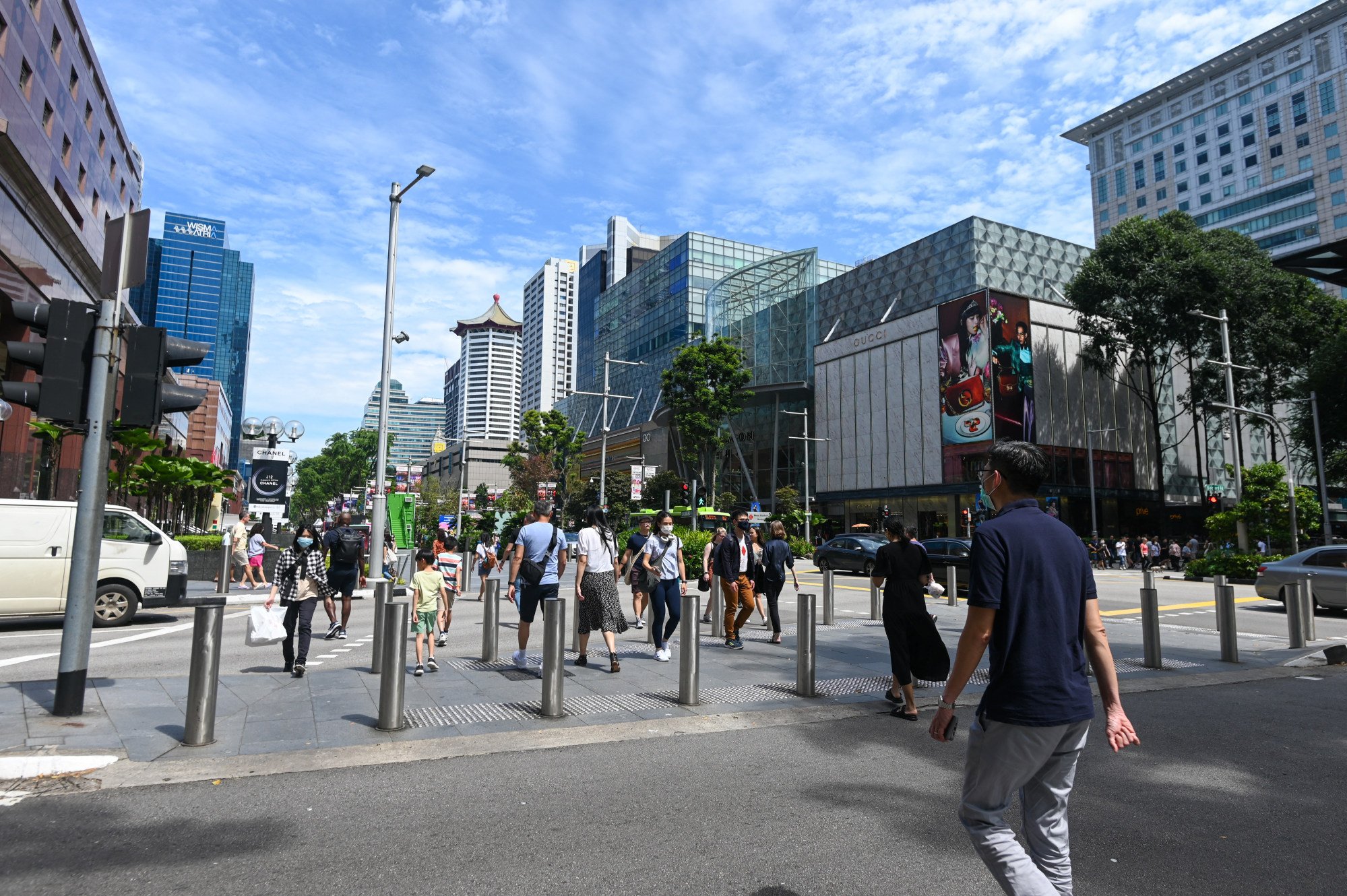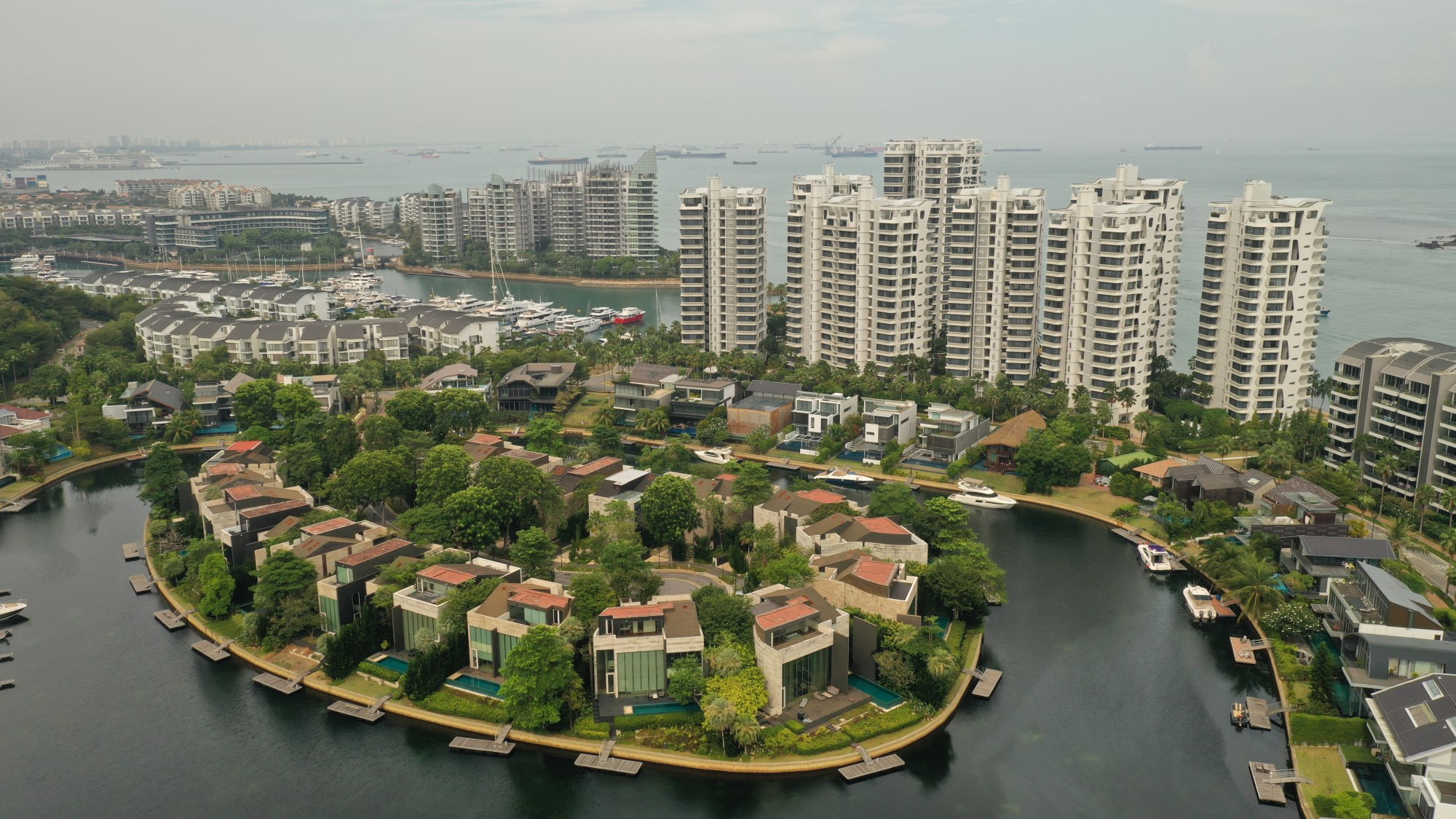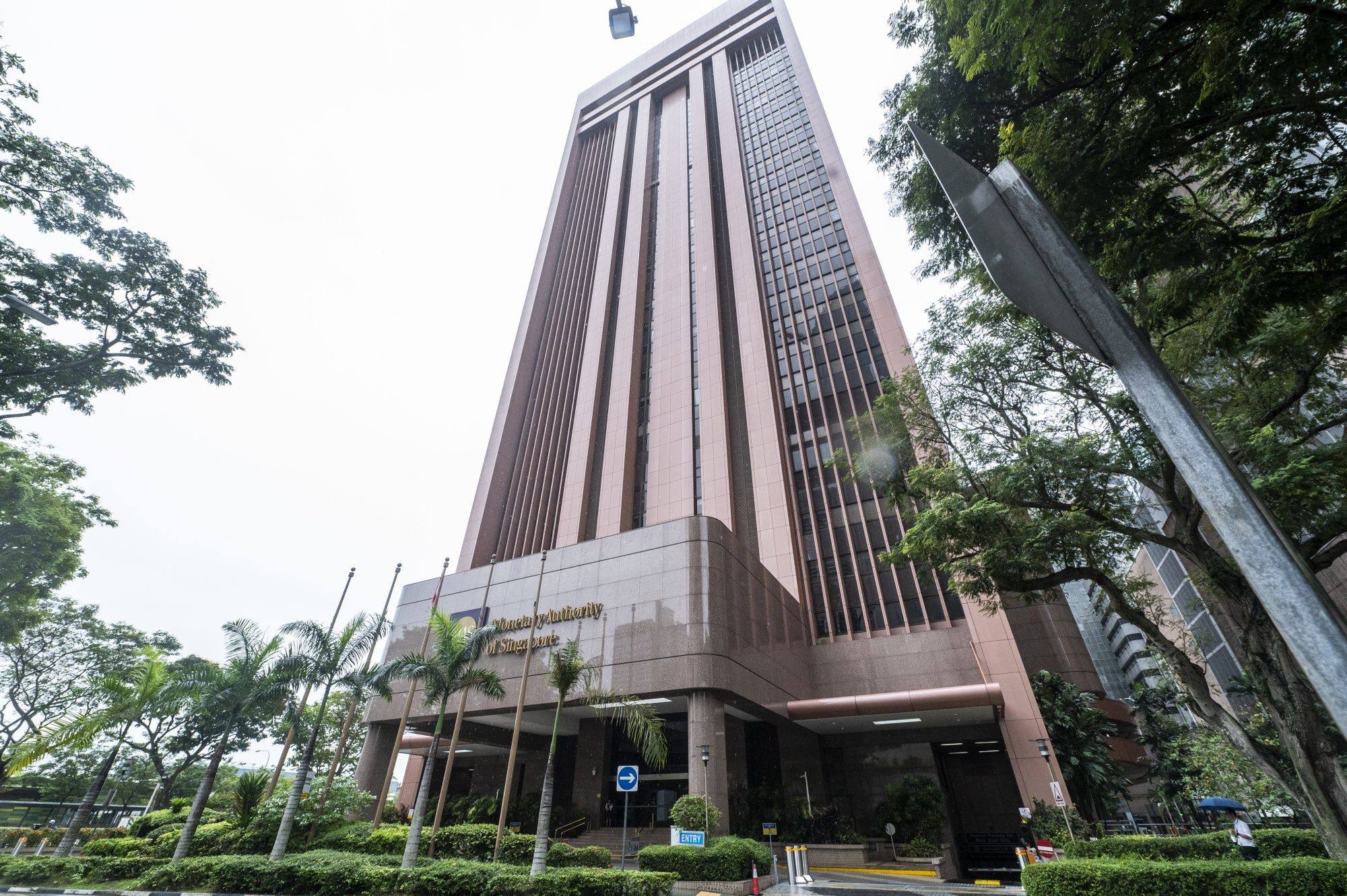“The risks of money laundering have been evident for a long time,” said Anton Moiseienko, a law lecturer at the Australian National University in Canberra who studies transnational and economic crime. “Now is really a time of reckoning or a wake-up call where we see a spectacular example of those risks materialising.”
Police last month disclosed that they had seized or frozen the assets held by the foreigners, and accused them of seeking to launder gains from organised crime in other countries. In China, police notices show at least five are wanted for a range of offences including illegal online gambling and scams.
Among the defendants, Su Wenqiang denies any allegation that he conducted remote gambling in Singapore, his counsel Manoj Nandwani of Gabriel Law Corp. said in an email on Monday. Wang Baosen has not yet entered a plea, his counsel Adrian Wee of Lighthouse Law said on Monday, declining to comment further. Megan Chia, a partner at Tan Rajah & Cheah representing Wang Dehai, declined to comment. Lawyers for the other seven accused did not respond to emailed requests for comment.
Singapore files charges against 10 with ‘Chinese passports’ in money-laundering bust
Singapore files charges against 10 with ‘Chinese passports’ in money-laundering bust
The government has touted the arrests as evidence that there is zero tolerance for money laundering. “It’s not easy to think of another centre that has taken such action,” Minister for Home Affairs and Law K Shanmugam said at a symposium on August 28.
According to Moiseienko, there is another way of looking at it. If that amount of money flooded into the property sector “potentially from proceeds of crime overseas, then clearly there was a lapse in how that system operated” because authorities had a long time to realise something was wrong.
[It raises] questions as to whether this could have been detected earlier
Reports of suspicious transactions by unidentified firms helped to detect illicit activities, the Monetary Authority of Singapore said on August 16. “Supervisory engagements” with institutions to assess whether they have taken all reasonable steps to mitigate risks are ongoing, and the authority will take action where controls have fallen short, it said in a statement on Monday.
DBS pledged on August 30 “to make Singapore a place where criminals cannot find harbour,” and Citi said it had been working with authorities to strengthen and protect the integrity of the financial system. UOB continually enhances capabilities and controls to fight money laundering, it said on Monday. Money launderers have sophisticated networks to facilitate illegal financial flows and OCBC devotes significant resources to continuously strengthen its controls and will work closely with regulators and peers, it said on Monday. Deutsche Bank has said it is cooperating with authorities. Standard Chartered did not respond to a request for comment.

Shocking extravagance
The network’s alleged illegality went unstopped for a long period even as it splashed vast amounts of money on extravagant lifestyles, centred around multimillion-dollar homes, ultra-luxury cars and prized golf-club memberships.
It raises “questions as to whether this could have been detected earlier,” said Victoria Ting, an associate director at Setia Law LLC and former deputy public prosecutor in Singapore for financial and technology crime.
Another is charged with paying S$23 million in 2019 for a condominium unit overlooking the luxurious Orchard Road shopping belt, using similar illicit gains.

Within this sanctuary is a smaller retreat that exemplifies the appeal of the financial hub: Pearl Island, where two of the arrested, Zhang Ruijin and Lin Baoying stayed. Zhang acquired a detached house on the outcrop, spanning 880 square metres (9,472 square feet), more than two years ago, according to government records. The price was undisclosed.
Another accused, Su Haijin, bought two adjacent bungalows facing the seafront at Cove Drive for S$36.4 million in 2021, and combined them to overcome a restriction on foreigners owning more than one home on the island, according to the Business Times. Another, Su Baolin, owns a home on Ocean Drive, according to government land records seen by reporters.
Sentosa Cove, a gated community to the south of Sentosa, is popular among wealthy foreigners because it has an exemption from laws that largely restrict land ownership elsewhere in the country to citizens. The break was introduced in areas of Sentosa nearly two decades ago to lure investment.
From pirates and prisoners to casino and golf: inside Singapore’s Sentosa Island
From pirates and prisoners to casino and golf: inside Singapore’s Sentosa Island
The other big attraction for the well-heeled is the prestigious Sentosa Golf Club, where membership for foreigners has now risen to nearly S$1 million. At least four of the alleged money launderers became members in 2021, according to the club magazines. At least two also had memberships at the Tanah Merah Country Club. Officials at the Sentosa and Tanah Merah clubs declined to give details or comment in view of the ongoing investigation.
In a country with a rich tapestry of ethnicity from across the Asian continent, and constantly on edge to maintain harmony among its ethnic groups, the alleged gang’s brazen display of opulence and privilege risks stirring resentment and a social backlash.
“Incidents like this have the potential to inflame feelings among many,” said Toh Han Shih, a Singaporean and chief analyst of Headland Intelligence, a Hong Kong-based risk consultancy.
Credit: Source link
